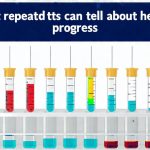The human body is an incredibly complex system, and understanding its intricacies often requires looking beyond simple metrics. For decades, blood work has been considered the gold standard for assessing overall health – a snapshot of internal processes distilled into numbers on a page. It reveals vital information about organ function, hormone levels, and potential deficiencies. However, relying solely on blood tests can sometimes paint an incomplete picture, missing crucial insights that functional assessments—evaluating how the body works rather than just what it contains—can uncover. These functional evaluations focus on capacity and capability, revealing limitations or imbalances before they manifest as obvious abnormalities in standard lab results.
The disconnect arises because blood work often reflects the result of a problem, not necessarily the root cause. It’s like assessing damage to a building after an earthquake – you see the cracks (the abnormal blood values), but it doesn’t tell you why the foundation was weak or how stress impacted its structure. Functional tests, on the other hand, aim to evaluate the foundations and the structural integrity itself. They explore how the body responds to challenges, identifying vulnerabilities and imbalances that might eventually lead to disease. This proactive approach allows for earlier intervention and a more personalized understanding of an individual’s health needs.
The Limitations of Traditional Blood Work
Traditional blood work excels at identifying established pathology. It’s excellent at confirming diagnoses like diabetes (elevated glucose levels), anemia (low red blood cell count), or thyroid dysfunction (abnormal TSH levels). However, it struggles to detect early-stage imbalances or functional deficiencies where the body is still compensating. Consider a person with adrenal fatigue – their cortisol levels might appear normal on a single blood test taken at one point in time, even though they experience chronic exhaustion and stress reactivity. This is because the body initially boosts cortisol production as a coping mechanism; it’s only when that capacity becomes depleted that levels begin to drop, potentially becoming visible in routine testing.
Furthermore, blood work provides information about specific markers but often lacks context. A slightly elevated inflammatory marker could be due to a temporary infection or indicate a chronic underlying issue. Without understanding the functional interplay between systems – how digestion impacts inflammation, how stress affects hormone balance, how sleep influences recovery – it’s difficult to interpret these numbers accurately. Blood tests are also susceptible to variations based on timing (fasting vs. non-fasting), hydration levels, and individual laboratory differences, adding another layer of complexity. They represent a single moment in time, whereas functional testing aims for a more dynamic understanding.
Finally, blood work often focuses on disease identification rather than health optimization. It tells you what’s wrong but not necessarily how to achieve peak performance or vitality. Functional assessments, by contrast, aim to identify areas where the body isn’t functioning optimally and provide insights into strategies for improvement – dietary changes, lifestyle modifications, stress management techniques, etc.
Digging Deeper: Examples of Functional Assessments
Functional tests come in a wide variety of forms, tailored to assess different systems and functions within the body. These aren’t meant to replace blood work but rather to complement it, providing a more holistic picture. Here are some examples:
- Digestive Function Testing: This can include stool analysis (to identify gut microbiome imbalances, enzyme deficiencies, or markers of inflammation) and breath tests (to detect lactose intolerance or small intestinal bacterial overgrowth – SIBO). These assessments reveal how well the body is breaking down and absorbing nutrients, which directly impacts energy levels, immune function, and overall health.
- Hormone Testing (beyond blood): While blood tests can measure hormone levels, salivary or urine testing can provide a more accurate picture of hormone metabolism and receptor sensitivity. This is particularly useful in assessing adrenal function or identifying hormonal imbalances contributing to PMS or menopause symptoms.
- Nutrient Functionality: Blood tests show what nutrients are present, but not necessarily how well the body is utilizing them. Functional nutrient testing, sometimes involving specialized blood work looking at intracellular levels or functional assays, can reveal deficiencies even when serum levels appear normal. For example, a magnesium deficiency may not be apparent in standard bloodwork if most of the magnesium is stored within cells.
- Cardiac Variability (HRV): Measures the variations in time between heartbeats; it reflects the balance between sympathetic and parasympathetic nervous systems – a key indicator of stress resilience and recovery capacity.
The Gut-Brain Connection & Functional Stool Analysis
The gut microbiome plays an enormous role in overall health, influencing everything from digestion and immunity to mood and cognitive function. Traditional blood work offers little insight into the composition and functionality of this microbial ecosystem. This is where functional stool analysis becomes invaluable. It can identify:
- Dysbiosis (an imbalance between beneficial and harmful bacteria).
- The presence of pathogenic organisms (harmful bacteria, parasites, or yeast).
- Markers of inflammation in the gut.
- Levels of digestive enzymes and other key markers of digestion.
Understanding these factors allows for targeted interventions – dietary changes, probiotic supplementation, prebiotic foods, or lifestyle adjustments – to restore a healthy gut microbiome. This, in turn, can have profound effects on mental health (the gut-brain connection), immune function, and chronic disease prevention. A seemingly “healthy” individual with digestive complaints might show no abnormalities in blood work but reveal significant imbalances through stool analysis. Are ferments causing more harm than good can also impact the gut biome.
Stress Resilience & Heart Rate Variability
Chronic stress is a major contributor to many modern health problems. While cortisol levels can be measured in blood, this provides only a snapshot of one aspect of the body’s stress response. Heart rate variability (HRV) offers a more dynamic and comprehensive assessment of stress resilience. HRV measures the variation in time between consecutive heartbeats. A higher HRV indicates greater adaptability and capacity to cope with stress, while a lower HRV suggests reduced resilience and increased risk of burnout or chronic disease.
- How it works: The autonomic nervous system controls heart rate; the sympathetic branch activates during “fight or flight,” reducing variability, while the parasympathetic branch promotes “rest and digest,” increasing variability.
- Assessing HRV: This is typically done using a wearable device or app that monitors heart rate over a period of time (often overnight).
HRV can help identify individuals who are experiencing chronic stress even if they don’t feel overtly stressed, allowing for targeted interventions like mindfulness practices, yoga, meditation, or improved sleep hygiene. It provides valuable feedback on the effectiveness of these interventions and helps track progress over time. When functional symptoms trigger health anxiety spirals often ties into stress resilience. Blood work might show normal cortisol levels in a chronically stressed individual, while HRV would reveal a diminished capacity to adapt. It is important to consider signs you’re reacting to more than one food as well when assessing stress resilience and overall health.
The key takeaway is not that blood work is useless – far from it. Instead, it’s about recognizing its limitations and embracing functional assessments as complementary tools for achieving a deeper understanding of health and well-being. When rest is the only remedy for functional gut distress can be an important part of the overall assessment process. By looking beyond the numbers on a page and evaluating how the body functions, we can unlock more personalized and effective strategies for prevention, treatment, and optimal performance. Could food temperature be more important than you think? is another factor to consider when assessing overall health. And finally, don’t forget that why some digestive enzymes work better than others can play a significant role in functional assessments too.


















